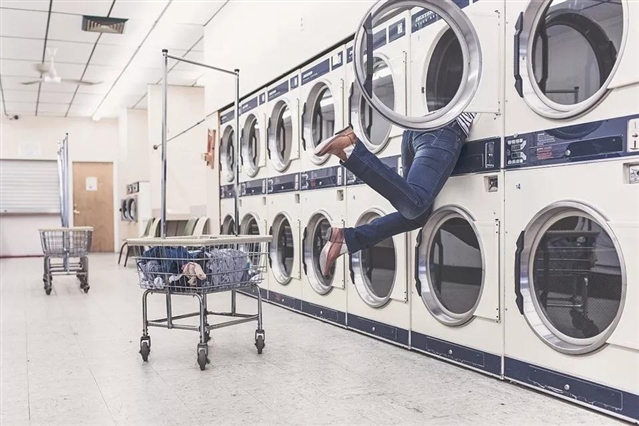|
|
|
|
|
女性外伤存活率高,原来不是因为雌激素 | BMC Journal |
|
|
论文标题:Female risk-adjusted survival advantage after injuries caused by falls, traffic or assault: a nationwide 11-year study
期刊:Scandinavian Journal of Trauma, Resuscitation and Emergency Medicine
作者:Robert Larsen, Denise Bäckström, Mats Fredrikson, Ingrid Steinvall, Rolf Gedeborg and Folke Sjoberg
发表时间:2019/03/15
数字识别码:10.1186/s13049-019-0597-3
原文链接:https://sjtrem.biomedcentral.com/articles/10.1186/s13049-019-0597-3?utm_source=other&utm_medium=other&utm_content=null&utm_campaign=BSCN_2_WX_sjtrem_arti_scinet
微信链接:https://mp.weixin.qq.com/s/DVimG1iCbjTmz75uk0ldNg
最近发表在开放获取期刊Scandinavian Journal of Trauma, Resuscitation and Emergency Medicine 上的一项研究指出,女性的激素——尤其是雌激素,似乎并不能解释严重外伤之后女性生存率高于男性的现象。这一研究历时11年,以815843名瑞典病人为研究对象。

研究的通讯作者、瑞典林雪平大学的Robert Larsen说:“众所周知女性的生存率整体好于男性,女性的寿命通常也长过男性几年。这种生存优势在外伤和败血症的动物模型中也已被观察到,但是能够解释这种优势的原理却还不清楚。更好地理解这些原理或可以改善外伤的护理预后。在这个研究中我们想要探索雌激素是否与女性的生存优势有关。”
研究者对因3种致命外伤——坠落、交通事故和袭击——住院的人进行研究,发现女性相比男性而言具有整体的生存优势。但是在将女性分为三个年龄层——0-14岁,15-50岁和50岁以上(月经前,生育期和停经后)——以代表不同雌激素水平再进行比较后,作者发现并未观察到三组之间有什么重大差异。
女性的生存优势在不同年龄组间没有差异,雌激素水平通常较高的年龄组(15-50岁)并未表现出更大的优势、死亡率并未显著低于其他年龄组。因此这些发现并未能够验证作者关于“雌激素具有保护性且是女性外伤后生存优势的主要因素”的假设。
通讯作者Robert Larsen说:“我们过去确信生存优势就是因雌激素而存在的,但如果激素如此重要,那么在产生激素的人生阶段中必定有更大的生存优势。但我们观察到的却是,如果真的存在一定的规律,那这个规律也是女性的生存优势可能会随着年龄增长而有一些改善。这进一步证明,造成男女之间生存差异的原因是其他原理而非雌激素水平。”
作者检视了2001-2011年间因坠落、交通事故或袭击而入院的815843人的数据,这些数据来自瑞典国家病人资料库和死因资料库。在所有被研究者中,有54%是女性。作者提醒,由于本研究使用年龄段来代表激素水平,可能会出现分类与实际不符的情况。
最近同样发表在Scandinavian Journal of Trauma, Resuscitation and Emergency Medicine 上的一个研究(作者Pape et al.)发现,2006年1月至2014年12月间荷兰三个外伤中心急诊接诊的6865个外伤病人中,男性进入重症监护室的几率大于女性。作者还发现16-44岁之间的女性病人有生存率上的优势。但是重伤病人中的这种性别优势已被研究了许多年,生理学上的机理依然不明。
摘要:
Background
A female survival advantage after injury has been observed, and animal models of trauma have suggested either hormonal or genetic mechanisms as component causes. Our aim was to compare age and risk-adjusted sex-related mortality in hospital for the three most common mechanisms of injury in relation to hormonal effects as seen by age.
Methods
All hospital admissions for injury in Sweden during the period 2001–2011 were retrieved from the National Patient Registry and linked to the Cause of Death Registry. The International Classification of Diseases Injury Severity Score (ICISS) was used to adjust for injury severity, and the Charlson Comorbidity Index to adjust for comorbidity. Age categories (0–14, 15–50, and ≥ 51 years) were used to represent pre-menarche, reproductive and post- menopausal women.
Results
Women had overall a survival benefit (OR 0.51; 95% CI 0.50 to 0.53) after adjustment for injury severity and comorbidity. A similar pattern was seen across the age categories (0–14 years OR 0.56 (95% CI 0.25 to 1.25), 15–50 years OR 0.70 (95% CI 0.57 to 0.87), and ≥ 51 years OR 0.49 (95% CI 0.48 to 0.51)).
Conclusion
In this 11-year population-based study we found no support for an oestrogen-related mechanism to explain the survival advantage for females compared to males following hospitalisation for injury.
阅读论文全文请访问:
https://sjtrem.biomedcentral.com/articles/10.1186/s13049-019-0597-3?utm_source=other&utm_medium=other&utm_content=null&utm_campaign=BSCN_2_WX_sjtrem_arti_scinet
期刊介绍:
The primary topics of interest in Scandinavian Journal of Trauma, Resuscitation and Emergency Medicine (SJTREM)( https://sjtrem.biomedcentral.com/,2.312 - 2-year Impact Factor, 2.612 - 5-year Impact Factor)are the pre-hospital and early in-hospital diagnostic and therapeutic aspects of emergency medicine, trauma, and resuscitation. Contributions focusing on dispatch, major incidents, etiology, pathophysiology, rehabilitation, epidemiology, prevention, education, training, implementation, work environment, as well as ethical and socio-economic aspects may also be assessed for publication.
(来源:科学网)
特别声明:本文转载仅仅是出于传播信息的需要,并不意味着代表本网站观点或证实其内容的真实性;如其他媒体、网站或个人从本网站转载使用,须保留本网站注明的“来源”,并自负版权等法律责任;作者如果不希望被转载或者联系转载稿费等事宜,请与我们接洽。